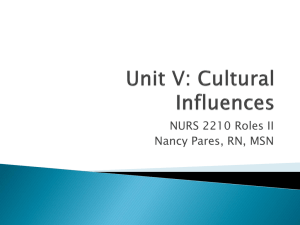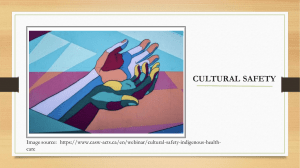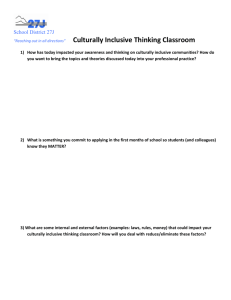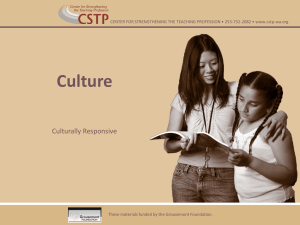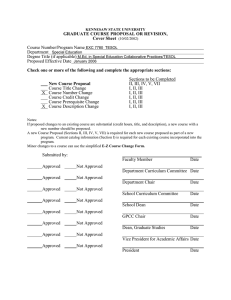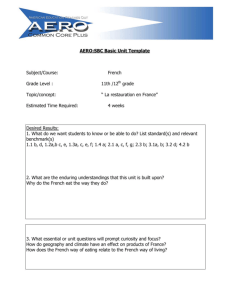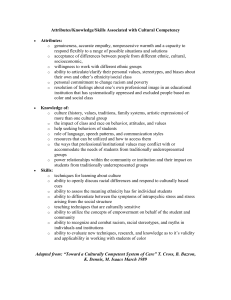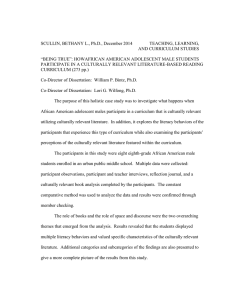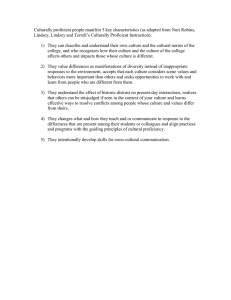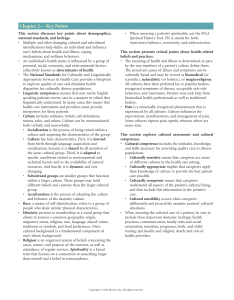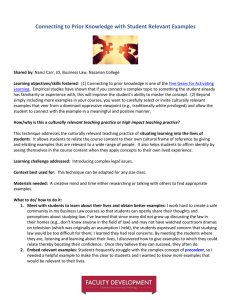Transition WVLearns e-Learning Course TOPIC
advertisement
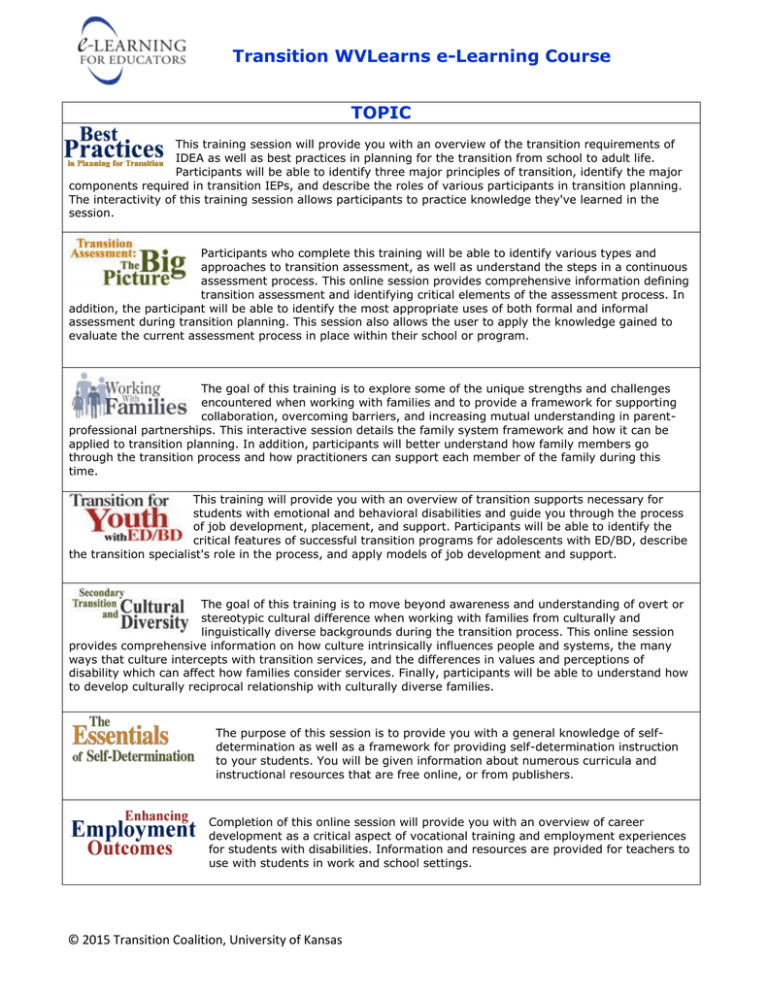
Transition WVLearns e-Learning Course TOPIC This training session will provide you with an overview of the transition requirements of IDEA as well as best practices in planning for the transition from school to adult life. Participants will be able to identify three major principles of transition, identify the major components required in transition IEPs, and describe the roles of various participants in transition planning. The interactivity of this training session allows participants to practice knowledge they've learned in the session. Participants who complete this training will be able to identify various types and approaches to transition assessment, as well as understand the steps in a continuous assessment process. This online session provides comprehensive information defining transition assessment and identifying critical elements of the assessment process. In addition, the participant will be able to identify the most appropriate uses of both formal and informal assessment during transition planning. This session also allows the user to apply the knowledge gained to evaluate the current assessment process in place within their school or program. The goal of this training is to explore some of the unique strengths and challenges encountered when working with families and to provide a framework for supporting collaboration, overcoming barriers, and increasing mutual understanding in parentprofessional partnerships. This interactive session details the family system framework and how it can be applied to transition planning. In addition, participants will better understand how family members go through the transition process and how practitioners can support each member of the family during this time. This training will provide you with an overview of transition supports necessary for students with emotional and behavioral disabilities and guide you through the process of job development, placement, and support. Participants will be able to identify the critical features of successful transition programs for adolescents with ED/BD, describe the transition specialist's role in the process, and apply models of job development and support. The goal of this training is to move beyond awareness and understanding of overt or stereotypic cultural difference when working with families from culturally and linguistically diverse backgrounds during the transition process. This online session provides comprehensive information on how culture intrinsically influences people and systems, the many ways that culture intercepts with transition services, and the differences in values and perceptions of disability which can affect how families consider services. Finally, participants will be able to understand how to develop culturally reciprocal relationship with culturally diverse families. The purpose of this session is to provide you with a general knowledge of selfdetermination as well as a framework for providing self-determination instruction to your students. You will be given information about numerous curricula and instructional resources that are free online, or from publishers. Completion of this online session will provide you with an overview of career development as a critical aspect of vocational training and employment experiences for students with disabilities. Information and resources are provided for teachers to use with students in work and school settings. © 2015 Transition Coalition, University of Kansas
